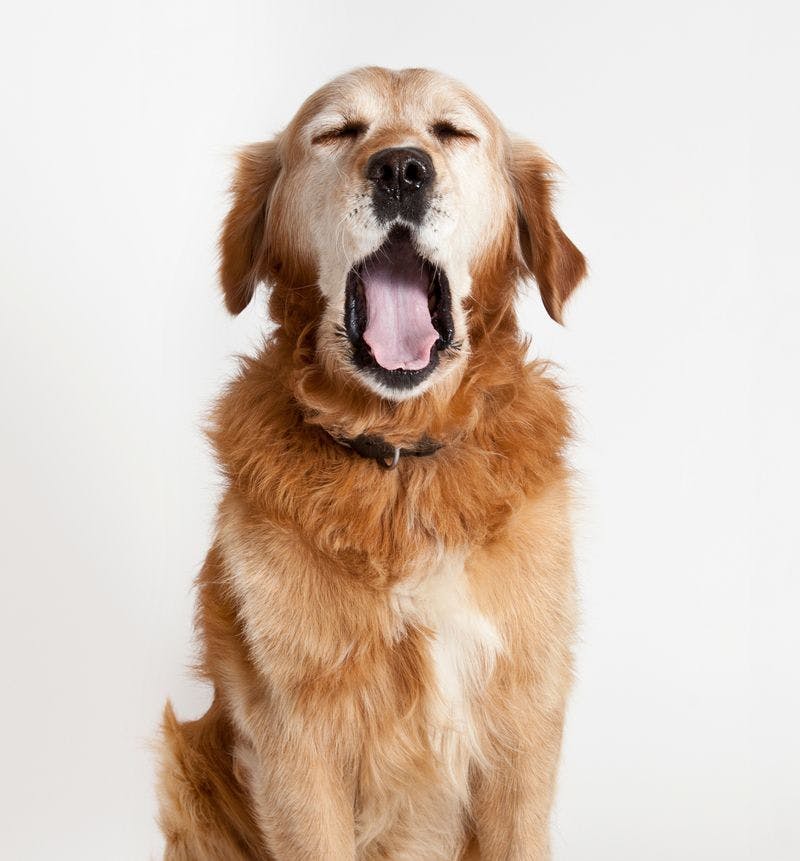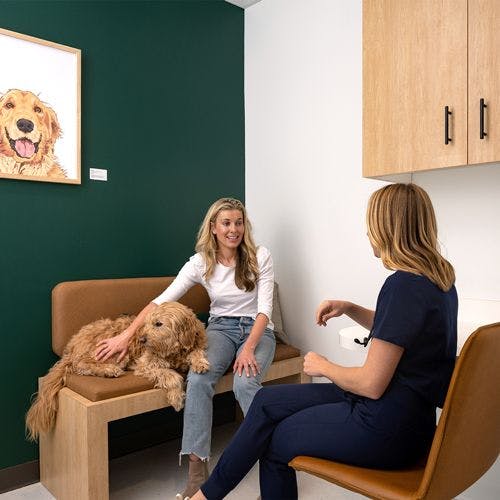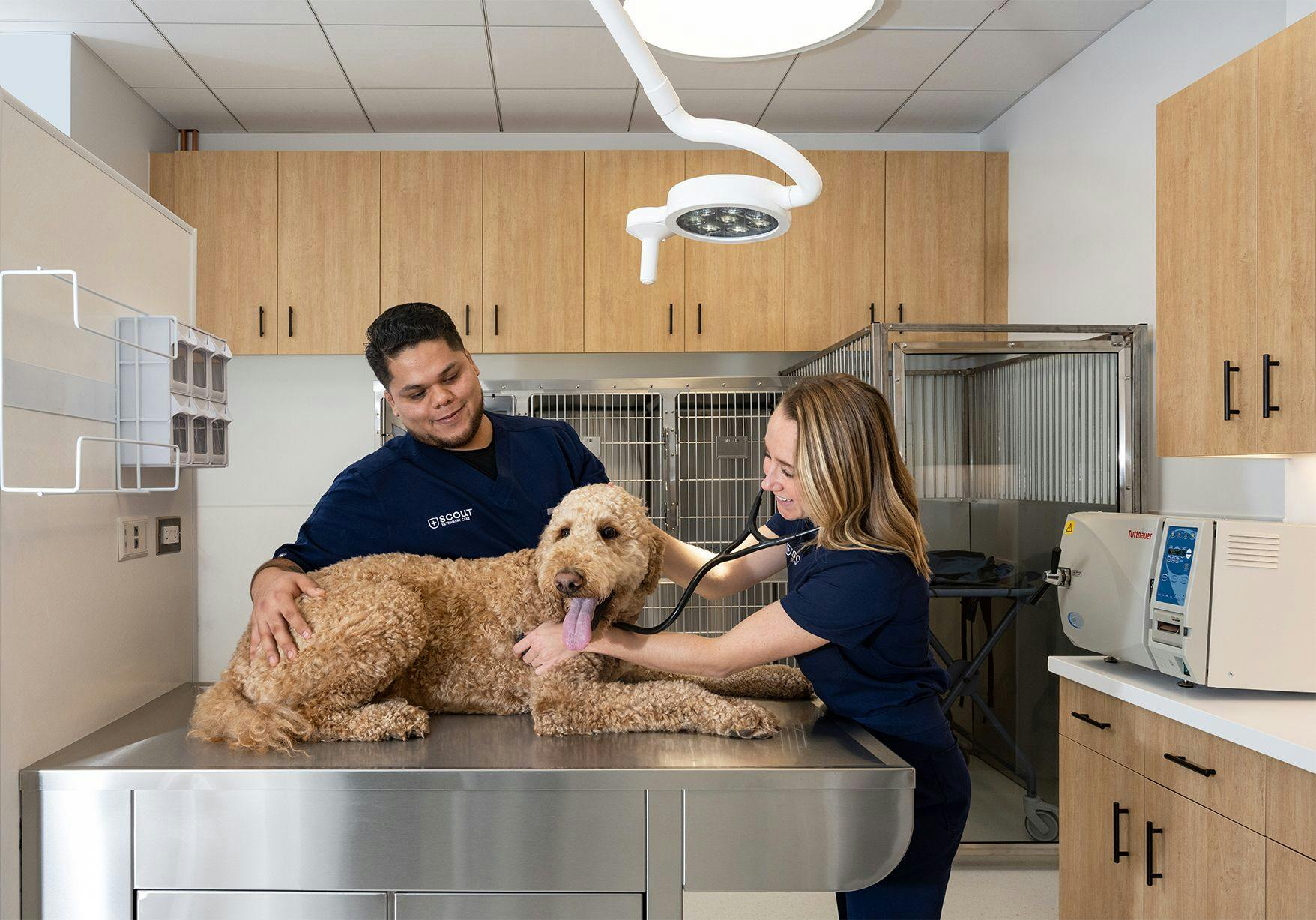

Hi there! We are sorry you are here but happy to help. When your pup has diarrhea life can be no fun. Frequent trips outside, lots of cleaning, stained carpets and not to mention the sad look on their face! Most episodes of diarrhea are short lived. However, diarrhea can be a sign of something more serious and if the episode is prolonged, can lead to serious dehydration. Here is how to tell if it is serious and what can be done.
What’s going on with your pet?
Here are some signs that you should be paying close attention or seeking advice:
- Dark black stool often with a tar like consistency. This can mean that there is bleeding in the gut. That black color can indicate digested blood. This is a serious concern.
- A large amount of watery or jelly-like stool that looks like blood. This is consistent with a disease called acute hemorrhagic diarrhea syndrome or previously known ashemorrhagic gastroenteritis (HGE). These pets can get sick really fast and often need treatment.This can happen at any age and to any breed.
- Bright red blood in the stool. While this can be upsetting to see, a small amount of bright red blood on the stool can be minor. Bright red blood that accompanies mucous is commonly from inflammation in the colon and will resolve on itsown. However, if you note a large volume of blood, the stool is watery, or it gets worse with time, this is a problem.
- Is your pet a puppy and not up to date on vaccines yet? Or have they just finished a series of vaccines in the last week? Puppies are at risk for serious infections before they are fully immune. Even when they have all of their shots it can take time for their bodies to develop the right amount of immunity. Parvovirus is a serious disease and highly contagious.
- What about worms? Have you seen any in the stool? Are they taking a dewormer that was prescribed by a veterinarian? Some over the counter products are ineffective against certain types of worms. Sometimes you won’t see the worms in the stool until much later in the process of infection or not at all. If you are not sure if your pet is onan appropriate dewormingroutine make sure you ask a veterinarian!
- Have they also stopped eating and drinking? If so, they can quickly become dehydrated and need supplemental fluids and/or electrolytes.
- Are they also vomiting? This is another risk of serious dehydration and also makes it much harder to treat your pet at home.


Here’s what you can do at home...
If the diarrhea is not too severe, there are several things you can do at home to avoid a visit to the veterinarian and make your pet more comfortable.
- Hold off feeding one meal. We know it’s hard not to feed your sad baby when they are feeling crummy. But sometimes the gut needs to rest. Make sure you still allow access to plenty of water!
- When you start feeding again, choose a really bland diet. We like boiled chicken breast and white rice. If your pet has food allergies, choose a different low-fat meat and/or bland carbohydrate source. You can also find pre-made bland diets at the pet store. If this trick works, that's great! Just make sure that you slowly add back inyour pet’s normal diet over the next 3 days so they don’t go right back to where they started!
- Avoid using over the counter diarrhea aids for humans. Many of these are unsafe for pets or require specific dosing.
- Don’t supplement electrolytes with sugary drinks. This can throw off their system further.

Does your pet need Urgent Care?
If it’s just one minor episode, probably not today. But if it is prolonged or there are any of the serious symptoms mentioned above Yes! Remember also to trust your gut too. If you think it’s serious it probably is. Scout is here to help!
What can you expect from your visit?
Dogs get diarrhea for a multitude of reasons. Come prepared to answer some questions! The Scout team will want to know their vaccine and deworming history, normal diet and any unusual foods eaten recently, if they go to parks or daycare, if they get into the garbage or scrounge up anything on walks and more! History taking can give your Scout veterinarian the right background information to narrow down tests and get you help more efficiently.
Many people will bring a sample of the stool with them. It’s also ok to take a picture of the stool and let the Scout team collect a sample if needed. It’s up to you!
Your Scout veterinarian may recommend:
Bloodwork: Some of the consequences of diarrhea such as severe dehydration and electrolyteimbalances require bloodwork to detect. There are also some blood tests that can help determine causes of diarrhea
Fecal testing: There are some parasites and infections that are best tested with looking directly at the stool.
Parvovirus test: This is more commonly done in puppies and unvaccinated pets but if your Scout veterinarian thinks it’s a possible cause, they may recommend this test even if it’sunlikely due to the severity of and highly contagious nature of this disease.
Treatments: Your Scout veterinarian wants your pet to feel better just as much as you do! They may recommend fluids under the skin to help with dehydration, medications to directly treat the cause or symptoms and/or a specific diet to help your pet get back on track.
Follow up appointments: Most visits to Scout for diarrhea won’t require a follow up appointment. However, if the diarrhea does not resolve or there were any other issues uncovered during the visit, they may recommend a checkup to ensure your pet is back on track. If you have a primary care veterinarian that you normally see, you can choose to see them or come back to see Scout.
Remember that you are the best advocate for your pet. If you think it’s a problem it probably is! We are here for you in your time of need.
Next available appointment in Chicago:
Lincoln Park
2369 N. Lincoln Ave. Chicago, IL 60614
773-676-8166
OPEN 7 DAYS A WEEK 10A-8P
West Loop
112 N. May St. Chicago, IL 60607
773-676-2988
OPEN 7 DAYS A WEEK 10A-8P
See Scout today.
Book an appointment online up to 36 hours in advance.






